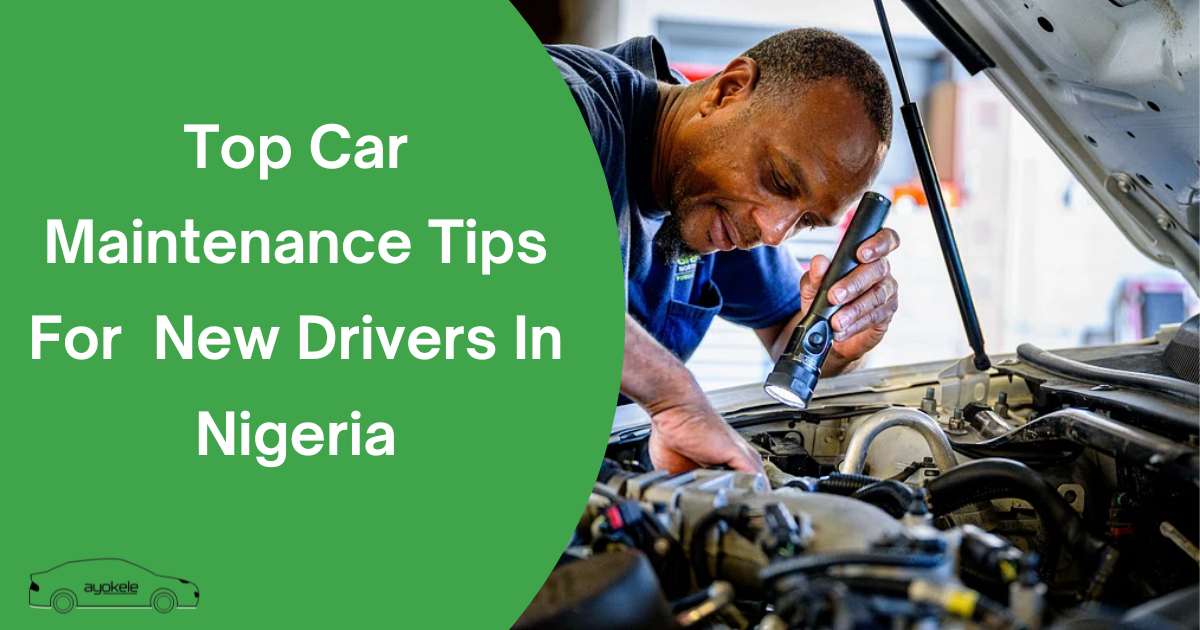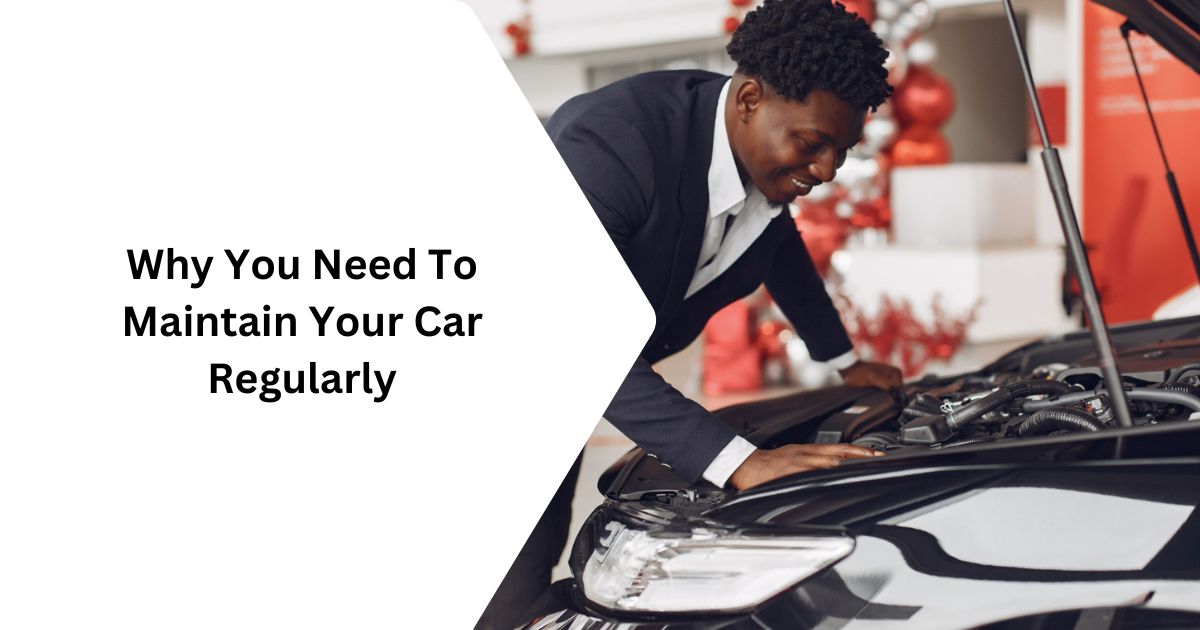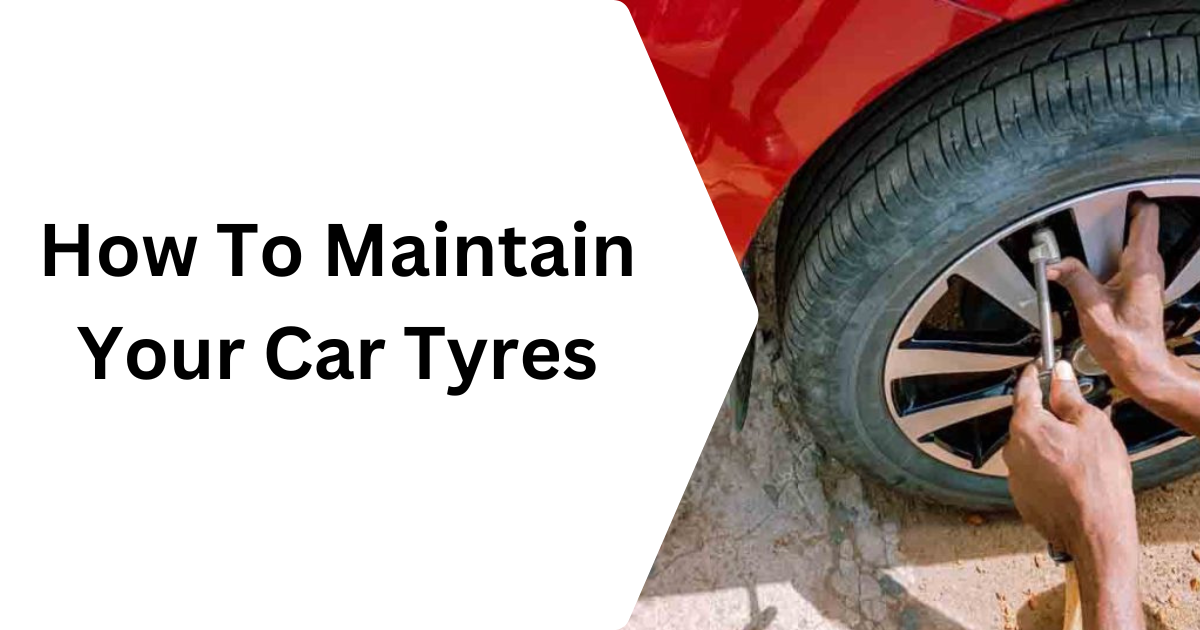For new drivers, car maintenance might initially seem overwhelming, but understanding basic maintenance principles can save you from costly repairs and help you build a stronger connection with your vehicle. In fact, regular maintenance can extend a car’s lifespan by up to 50%—a significant consideration in a market where vehicle prices continue to rise.
This guide will explore essential maintenance tips tailored to Nigeria’s driving conditions, helping you keep your vehicle running smoothly.
Understanding Basic Car Components
Understanding your car’s basic components is comparable to learning about the human body’s systems – each part plays a crucial role in keeping everything running smoothly. This knowledge is particularly important for new drivers given unique driving conditions and varying maintenance service quality. The key is understanding how these systems work together and what they need to function properly in challenging environments.
The engine is at the core of every vehicle, often called the car’s ‘heart’, where fuel is transformed into the power that moves your vehicle. Maintaining engine health is crucial in the hot climate, requiring regular checks of vital fluids: engine oil for lubrication, coolant to prevent overheating, and power steering fluid for smooth steering. When mechanics mention “topping up,” these are typically the fluids they refer to. Just as important is the air intake system – the car’s ” lungs’—which is especially critical in dusty conditions, particularly during Harmattan season. The air and fuel filters protect your engine from dust, debris, and fuel contaminants, a vital function given the varying fuel quality across different filling stations.
Your car’s tires and brake system—its “feet”—deserve special road attention. Proper tire pressure and tread depth are essential for handling smooth highways and unexpected potholes. At the same time, the brake system needs regular inspection to ensure safety in often unpredictable traffic situations.
The electrical system is your car’s ‘nervous system’, comprising the battery (particularly stressed in hot climates), alternator, and various sensors. When warning lights illuminate your dashboard, your car communicates potential problems that need attention.
Finally, the suspension—your car’s”system”—includes shock absorbers and springs that provide comfort and protect other components from damage caused by rough roads and speed bumps, common in urban and rural areas.
All these components work in harmony, and while you don’t need to become a master mechanic, understanding these basics helps you communicate better with your mechanic, make informed maintenance decisions, and potentially save money by addressing issues before they become serious problems. This foundational knowledge is your first step toward becoming a responsible car owner in a unique driving environment.
Daily and Weekly Maintenance Checks
Let me explain the essential daily and weekly maintenance checks that every Nigerian driver should perform, focusing on our unique climate and road conditions.
Daily Checks:
- Before starting your journey, take a quick walk around your vehicle. In many Nigerian cities where road construction or debris is common, inspect your tires for any obvious cuts, bulges, or embedded objects. This simple check can prevent unexpected tire problems during your commute. Also, verify that all lights are working properly, especially during the rainy season when visibility can be dramatically reduced.
- Check your dashboard warning lights when starting the car. If any warning lights stay on after the engine starts, it could indicate a problem that needs attention. Attention the check engine, oil pressure, and battery lights.
Weekly Fluid Level Checks:
- Engine Oil: Check it when the engine is cold and on level ground for an accurate reading. The oil should be between the minimum and maximum marks on the dipstick, and its color should be brown to black. If it appears milky or you notice a significant drop in level, this could indicate serious problems requiring immediate attention. Low oil levels can lead to catastrophic engine failure in Lagos’s heavy traffic or Abuja’s high temperatures.
- Coolant Level: This is particularly crucial during the dry season when temperatures soar. Check the coolant reservoir—the level should be between the minimum and maximum marks. Never open the radiator cap when the engine is hot. If you frequently top up coolant, this might indicate a leak that needs professional attention.
- Brake Fluid: Given Nigeria’s often unpredictable traffic situations, properly functioning brakes are essential. While the car is on level ground, check the brake fluid reservoir. The fluid should be clear to slightly golden. If it appears dark or dirty, it’s time for a change.
- Tire Pressure: Check it weekly at a reliable filling station where pressure gauges are regularly calibrated. Nigerian roads can be unforgiving, and incorrect tire pressure can lead to uneven wear, reduced fuel efficiency, and dangerous blowouts. Remember to check the spare tire.
- Battery: Our hot climate demands weekly battery attention. Check that the terminals are clean and tight;windshield corrosion can build up quickly in humid conditions. If you notice a white, powdery substance around the terminals, clean it off with baking soda and water.
- Windshield Washer Fluid is critical during the Harmattan season, when dust is prevalent, and in the rainy season, when mud splashes are common. Use proper washer fluid rather than just water;—it helps clean the windscreen more effectively.
Essential Maintenance Schedule
Understanding and following a proper maintenance schedule is crucial for any car owner in Nigeria. While manufacturers provide general service intervals, our local conditions – from dusty Harmattan winds to pothole-riddled roads – often require more frequent attention to certain components. Here’s a comprehensive maintenance schedule tailored for Nigerian driving conditions.
Every 5,000 kilometers or 3 months (whichever comes first):
- Oil and oil filter change: Essential in Nigeria’s hot climate and considering our variable fuel quality. Don’t be tempted to extend intervals, as our operating conditions are generally classified as ‘severe’ by manufacturer standards. Use the manufacturer-recommended oil grade, typically 5W-30 or 5W-40 for most modern cars.
- Tire rotation and balancing: Our roads can cause uneven tire wear. Regular rotation ensures even wear and extends tire life. Look for signs of alignment issues, which are common due to frequent encounters with potholes.
- Air filter inspection: During the Harmattan season, consider changing it more frequently. A clogged air filter reduces fuel efficiency and engine performance.
- Battery check: High temperatures accelerate battery wear. Have the voltage checked and terminals cleaned to prevent corrosion.
Every 10,000 kilometers or 6 months:
- Brake system inspection: Check brake pad wear, brake fluid condition, and brake lines. Nigerian traffic conditions can be demanding on brakes.
- Fuel filter replacement: More frequent changes may be needed due to varying fuel quality across different filling stations.
- Transmission fluid check: Automatic transmissions need regular fluid inspection in our stop-and-go traffic conditions.
- Power steering fluid check: The constant manoeuvring around potholes and tight spots stresses the power steering system.
Every 20,000 kilometers or 12 months:
- Comprehensive suspension check: Look for worn shock absorbers, bushings, and other suspension components that are subjected to heavy stress on our roads.
- Coolant system service: Our high temperatures make this crucial. Check for leaks, test coolant concentration, and inspect hoses.
- Spark plug inspection: Good spark plugs ensure efficient fuel combustion, which is particularly important given our fuel quality variations.
- Drive belt inspection: Heat and dust can accelerate belt wear. Check for cracks and proper tension.
Every 40,000 kilometres or 24 months:
- Timing belt inspection/replacement (if applicable) is critical for interference engines. Don’t wait for failure, as it can cause catastrophic engine damage.
- Major transmission service: Includes fluid change and filter replacement where applicable.
- Wheel bearing inspection: Our road conditions can be harsh on wheel bearings.
- Complete brake fluid replacement: Moisture accumulation in brake fluid is accelerated in our humid climate.
Remember, these are general guidelines. Your specific vehicle might need adjustments based on:
- Age and current condition of the vehicle
- Manufacturer recommendations
- Your typical driving conditions (urban vs. rural)
- The quality of parts and fluids available in your area
Always consult your owner’s manual and a trusted mechanic to fine-tune this schedule for your vehicle and driving conditions. In car maintenance, prevention is always cheaper than cure.
Cost-Effective Maintenance Strategies
Smart Budgeting and Preventive Care
If you approach it strategically, maintaining a car in Nigeria doesn’t have to drain your bank account. Start by creating a monthly maintenance fund – set aside about 5-10% of your car’s value annually for maintenance and repairs. This preparation helps avoid the financial strain of unexpected repairs. For example, if your car is worth ₦2 million, aim to save ₦8,000-16,000 monthly for maintenance.
Parts Selection and Sourcing
Understanding your options for car parts in the Nigerian market is crucial. While genuine parts from authorized dealers offer the highest quality, they can be expensive. Consider these strategies:
- Use genuine parts for critical components like brake systems and engine parts
- Opt for high-quality aftermarket parts from reputable manufacturers for less critical components
- Build relationships with trusted parts dealers who can alert you to good deals
- Consider purchasing parts in bulk with other owners of similar vehicles to get better prices
Regular Maintenance vs. Emergency Repairs
In car maintenance, prevention is invariably cheaper than cure. For instance, regular oil changes, which cost around ₦8,000-15,000, can prevent engine damage that might cost millions to repair. Similarly, a ₦20,000 brake pad replacement is far cheaper than dealing with a brake system failure that could cost ten times more.
Building a Relationship with Mechanics
Find a trustworthy mechanic through recommendations and stick with them. A mechanic who knows your car’s history can:
- Spot potential problems early
- Advise on priority repairs when budget is tight
- Often offer better rates to regular customers
- Guide you on which repairs you can safely postpone
DIY vs. Professional Service
Learn to handle simple maintenance tasks yourself:
- Fluid level checks and top-ups
- Tire pressure monitoring
- Basic filter inspections
- Battery terminal cleaning These simple tasks can save you frequent mechanic visits while helping you understand your car better.
Service Record Keeping
Maintain detailed records of all maintenance work, including:
- Date and mileage of each service
- Parts replaced, and their costs
- Labor charges
- Fuel consumption This documentation helps track expenses, identify patterns, and make informed decisions about future repairs or even when to sell the vehicle.
Remember, cutting corners on maintenance to save money often leads to more expensive repairs later. The goal is to maintain your car effectively while managing costs intelligently.
DIY Maintenance Skills
Basic DIY Skills Every Nigerian Driver Should Master Before diving into car maintenance, invest in essential tools: a basic socket set, screwdrivers, pliers, a jack, jack stands, and a flashlight. These will cost about ₦15,000-30,000 but will quickly pay for themselves. Always work in a well-lit area and prioritize safety. If you’re unsure about a task, consult a professional.
Safe DIY Tasks You Can Start With:
- Checking and Topping Up Fluids
- Engine oil: Learn to read the dipstick correctly. Oil should be checked when the engine is cold and on level ground
- Coolant: Only check when the engine is cold to avoid burns
- Brake fluid: Monitor the level and color – if it’s dark, it needs professional replacement
- Power steering fluid: Keep it at the recommended level
- Windscreen washer fluid: Mix with proper washer fluid, not just water
- Tire Maintenance
- Pressure checking: Best done when tires are cold
- Tread depth monitoring: Use the ₦100 coin test method
- Rotation: Learn the correct pattern for your vehicle type
- Spare tire checks: Ensure it’s properly inflated and in good condition
- Battery Care
- Terminal cleaning: Use a mixture of baking soda and water
- Connection tightening: Ensure terminals are secure
- Water level checking (for conventional batteries)
- Learning to jump-start safely
- Filter Inspections
- Air filter: Learn to remove, clean, and assess when replacement is needed
- Cabin filter: Usually accessible behind the glove compartment
- Fuel filter: Learn to identify but leave replacement to professionals
When to Avoid DIY Some tasks should always be left to professionals:
- Brake system repairs
- Engine timing adjustments
- Transmission work
- Electrical system repairs
- Air conditioning service
Building Your DIY Skills:
- Start with simple tasks and gradually build confidence
- Use online resources and car manuals for guidance
- Join local car owner groups for advice and support
- Keep a log of all DIY maintenance performed
Remember, DIY maintenance’s goal is to save money and better understand your vehicle. This knowledge helps you make informed decisions when professional service is needed.




